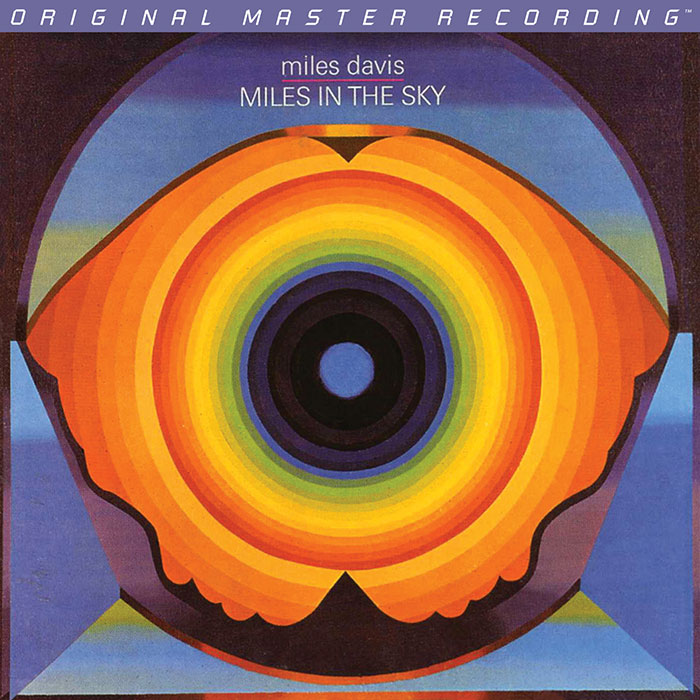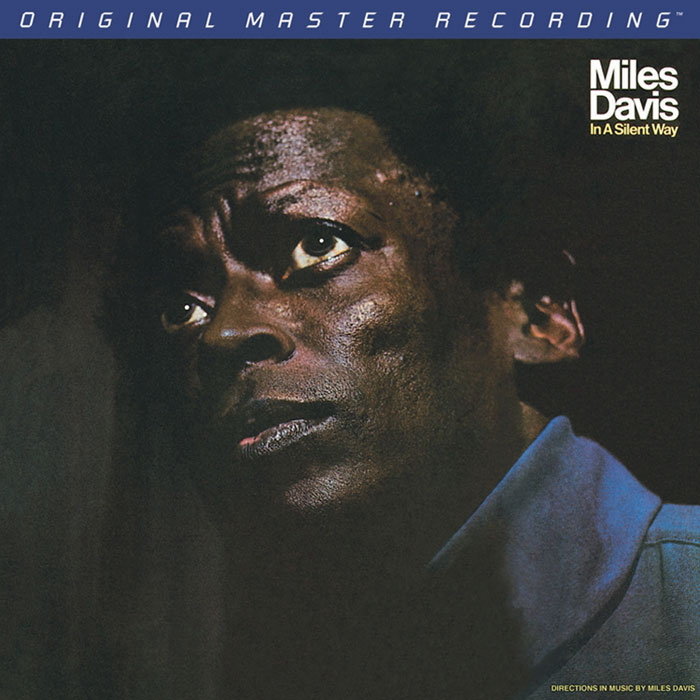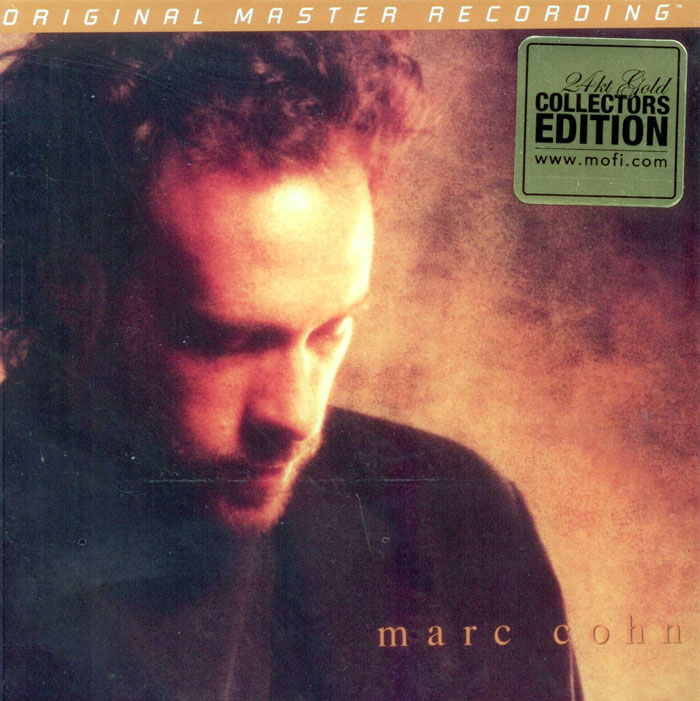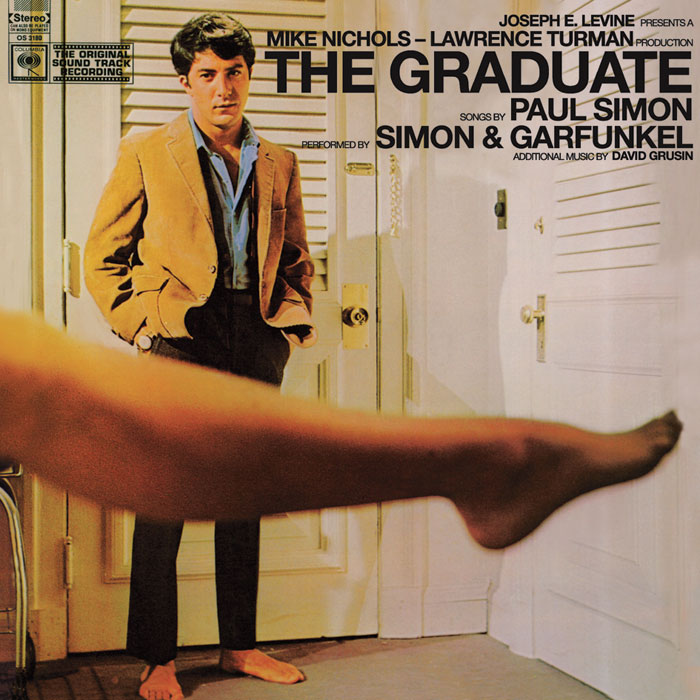Logowanie
Dziś nikt już tak genialnie nie jazzuje!
Bobby Hutcherson, Joe Sample
San Francisco
SHM-CD/SACD - NOWY FORMAT - DŻWIĘK TAK CZYSTY, JAK Z CZASU WIELKIEGO WYBUCHU!
Wayne Shorter, Freddie Hubbard, Herbie Hancock, Ron Carter, Elvin Jones
Speak no evil
UHQCD - dotknij Oryginału - MQA (Master Quality Authenticated)
Chesky! Niezmiennie perfekcyjny
Winylowy niezbędnik
ClearAudio
Double Matrix Professional - Sonic
najbardziej inteligentna i skuteczna pralka do płyt winylowych wszelkiego typu - całkowicie automatyczna
Miles Davis
A Tribute to Jack Johnson
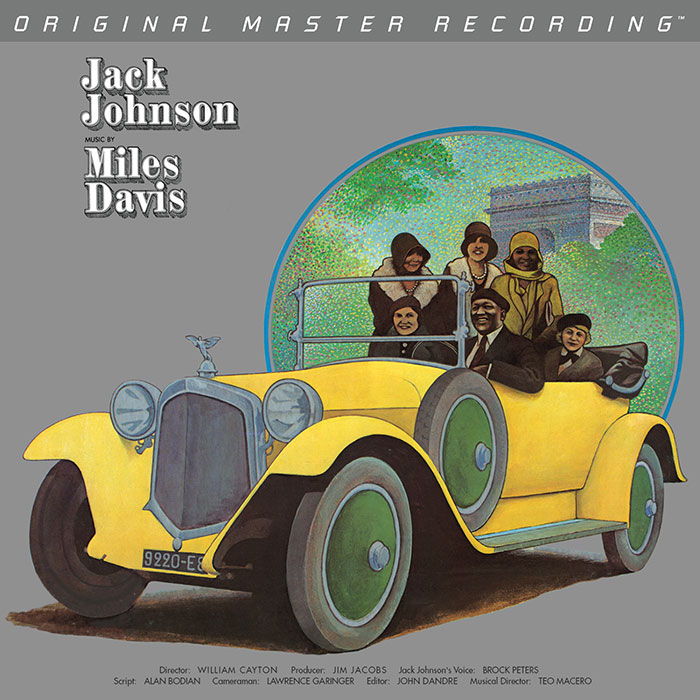
SUPERVINYL
None of Miles Davis' recordings has been more shrouded in mystery than Jack Johnson, yet none has fulfilled Miles Davis' promise that he could form the "greatest rock band you ever heard" better. Containing only two tracks, the album was assembled out of no less than four recordings sessions between February 18, 1970, and June 4, 1970, and was patched together by producer Teo Macero. Most of the outtake material ended up on Directions, Big Fun, and elsewhere. The first misconception is lineup: the credits on the recording are incomplete. For the opener "Right Now," the band is Miles, John McLaughlin, Billy Cobham, Herbie Hancock, Michael Henderson, and Steve Grossman (no piano player!), which reflects the liner notes. This was from the musicians' point of view, in a single take, recorded as McLaughlin began riffing in the studio while waiting for Miles, it was picked up on Henderson and Cobham, Hancock was ushered in to jump on a Hammond organ (he was passing through the building), and Miles rushed in at 2:19 and proceeded to play one of the longest, funkiest, knottiest, and most complex solos of his career. Seldom has he cut loose like that and played in the high register with such a full sound. In the meanwhile, the interplay between Cobham, McLaughlin, and Henderson is out of the box, McLaughlin playing long, angular chords centering around E. This was funky, dirty rock & roll jazz. There is this groove that gets nastier and nastier as the track carries on, and never quits, though there are insertions by Macero of two Miles takes on Sly Stone tunes and an ambient textured section before the band comes back with the groove, fires it up again, and carries it out. On "Yesternow," the case is far more complex. There are two lineups, the one mentioned above, and one that begins at about 12:55. The second lineup was Miles, McLaughlin, Jack DeJohnette, Chick Corea, Bennie Maupin, Dave Holland, and Sonny Sharrock. The first 12 minutes of the tune revolve around a single bass riff lifted from James Brown's "Say It Loud, I'm Black and I'm Proud." The material that eases the first half of the tune into the second is taken from "Shhh/Peaceful," from In a Silent Way, overdubbed with the same trumpet solo that is in the ambient section of "Right Off." It gets more complex as the original lineup is dubbed back in with a section from Miles' tune "Willie Nelson," another part of the ambient section of "Right Off," and an orchestral bit of "The Man Nobody Saw" at 23:52, before the voice of Jack Johnson (by actor Peter Brock) takes the piece out. The highly textured, nearly pastoral ambience at the end of the album is a fitting coda to chilling, overall high-energy rockist stance of the album. Jack Johnson is purest electric jazz record ever made because of the feeling of spontaneity and freedom it evokes in the listener, for the stellar and inspiring solos by McLaughlin and Davis that blur all edges between the two musics, and for the tireless perfection of the studio assemblage by Miles and producer Teo Macero. Thom Jurek (AMG) Miles Davis (trumpet); Brock Peters (spoken vocals); John McLaughlin , Sonny Sharrock (electric guitar); Steve Grossman (soprano saxophone); Herbie Hancock (organ); Michael Henderson (bass guitar); Billy Cobham (drums). ========== Numbered, Limited Edition 180g Vinyl LP from Mobile Fidelity! Sourced from the Original Analog Master Tapes & Pressed on MoFi SuperVinyl! The "Greatest Rock and Roll Band You Have Ever Heard": Miles Davis, John McLaughlin, and Co. Merge Electric Fusion and Defiant Rock on the Funky, Freeing A Tribute to Jack Johnson 1/4" / 15 IPS Analog Master to DSD 64 to Analog Console to Lathe Miles Davis' A Tribute to Jack Johnson is the best jazz-rock record ever made. Equally inspired by the leader's desire to assemble the "greatest rock and roll band you have ever heard," his adoration of Johnson, and Black Power politics, Davis created a hard-hitting set that surges with excitement, intensity, majesty, and power. Bridging the electric fusion he'd pursued on earlier efforts with a funkier, dirtier rhythmic approach, Davis zeroes in on concepts of spontaneity, freedom, and identity seldom achieved in the studio — and just as infrequently accepted by the mainstream. Sourced from the original analog master tapes, pressed on MoFi SuperVinyl, and housed in a Stoughton jacket, Mobile Fidelity's 180g LP reissue brings it all to fore with startling realism. Benefitting from SuperVinyl's nearly inaudible noise floor, superb groove definition, and clean, ultra-quiet surfaces, this 180g LP showcases everything — from the bold tonality of the headliner's white-hot trumpet solos to the decay of crashing cymbals, carry of wiry guitar notes, and echoes of the studio — in reference fashion. Bristling with exuberance, Davis' high-register passages explode with authority and commanding presence. Around him, a barrage of urgent backbeats, knifing riffs, and supple bass lines emerge amidst black backgrounds. One of the most prominent differences longtime fans will notice is how much more aggressive, immediate, and vibrant the music sounds, with those aspects central to the composer's original desires. Utilizing wah-wah and distortion, the go-to instrumentalist of the performances— guitarist John McLaughlin — attacks with a nasty edge, slashing style, and vicious streak that allows A Tribute to Jack Johnson cross the until-then-impenetrable divide between rock and jazz. Davis puts both feet in the former camp and erases any gap. The stories of the record's creation are nearly as legendary as the sounds within: Two sessions, multiple jams, different sets of musicians (several uncredited), and near-miraculous production perfectionism that made it all appear cohesive. The least-well-known masterpiece of Davis' career, the 1971 record — seamlessly assembled and spliced together by producer Teo Macero — was a victim of limited record-label promotion. Audiences also didn't immediately know what to make of its original cover art — faithfully replicated here. In addition, the powers that be at Columbia Records were directing the public's attention to Miles at Fillmore, a completely different kind of album guided by two keyboardists. A Tribute to Jack Johnson practically lives in a different universe, one from the future. To many listeners who did manage to hear it — among them critic/musician Robert Quine, Stooges leader Iggy Pop, and renowned critic Robert Christgau — it surpassed everything that came before. Indeed, Davis treated it as a personal manifesto: An opportunity to salute the Black championship boxer admired for his threatening image to the establishment and impeccable taste in clothes, cars, women and music. Davis explains in the liner notes his affinity for Johnson — a stance mirrored by the defiant music, which hits with a prize fighter's force and reflects the graceful elegance with which a pugilist navigates the ring — and closes the album with a Johnson quote read by Brock Peters. Inspired not only by Johnson but by Jimi Hendrix and Sly Stone, Davis changed his approach and his band. He surrounds himself with a cadre of musicians in their 20s and, in the case of bassist Michael Henderson, a 19-year-old fresh from touring with Stevie Wonder. Henderson gives Davis what he requested: boogie-based grooves that don't lose shape or direction. Soprano saxophonist Steve Grossman, drummer Billy Cobham, and organist Herbie Hancock adhere to a similar aesthetic that prizes brazenness, innovation, and energy. In that vein, during a portion of "Yesternow," Davis segues into a separate performance (which became known in its entirety as "Willie Nelson") played by guitarists McLaughlin and Sonny Sharrock, bass clarinetist Bernie Maupin, keyboardist Chick Corea, bassist Dave Holland, and drummer Jack DeJohnette. Dig it! Talking with jazz scholar Bill Milkowski — who himself noted how McLaughlin's unrestrained style, decibel-forward volumes, and rapid-fire power chords engendered himself to the rock crowd at the same time that his harmonics and syncopation still definitely made him a jazz player — guitarist Henry Kaiser summed up part of the appeal of A Tribute to Jack Johnson as well as anyone, saying: "It's a jazz record that was way more open than other jazz records at the time, but still not free jazz. [McLaughlin's] rhythm guitar playing on 'Right Off' — the use of different chords in a rock shuffle than what anybody had used before — was revolutionary." And to think that's just one aspect of a record that contains multitudes. "Never let them forget it." Indeed. MoFi SuperVinyl Developed by NEOTECH and RTI, MoFi SuperVinyl is the most exacting-to-specification vinyl compound ever devised. Analog lovers have never seen (or heard) anything like it. Extraordinarily expensive and extremely painstaking to produce, the special proprietary compound addresses two specific areas of improvement: noise floor reduction and enhanced groove definition. The vinyl composition features a new carbonless dye (hold the disc up to the light and see) and produces the world's quietest surfaces. This high-definition formula also allows for the creation of cleaner grooves that are indistinguishable from the original lacquer. MoFi SuperVinyl provides the closest approximation of what the label's engineers hear in the mastering lab.



































